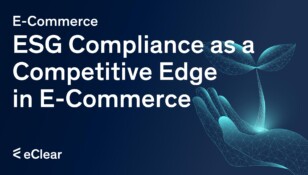On the one hand, the EU opened formal proceedings against Temu under the Digital Services Act (DSA). And on the other hand, the EU Commission and the Consumer Protection Cooperation (CPC) Network also urge Temu to comply with EU consumer protection law.
Formal Proceedings Under the Digital Services Act
In September 2024, Temu submitted a risk assessment report in response to EU Commission inquiries. The investigation focuses on four key areas of potential non-compliance:
- Non-Compliant Products: Measures to prevent rogue traders from reappearing and selling unsafe goods.
- Addictive Designs: Risk mitigation for game-like reward programs that may harm users.
- Content Recommendations: Compliance with DSA obligations regarding algorithm transparency and offering users non-profiling-based recommendations.
- Researcher Access to Data: Ensuring researchers can access Temu’s publicly available data.
While the DSA sets no strict deadline for resolving these proceedings, the Commission has broad enforcement powers, which could lead to significant penalties or restrictions for Temu.
To address these challenges, platforms must implement robust data infrastructures and real-time monitoring systems. Such systems enable platforms to ensure high-quality data and traceability, helping them comply with product safety standards and other DSA obligations.
Temu Under the Spotlight of the Consumer Protection
Strong accusations regarding consumer rights were also made by the EU Commission and the Consumer Protection Cooperation Network.
The accusations include the use of misleading information, exertion of pressure, fake reviews and false discounts.
Authorities are reviewing whether Temu’s platform practices align with consumer protection standards. The areas under review include:
- False discounts: Promotions that suggest a discount when there isn’t one.
- Pressure tactics: Limited-time offers that push consumers to buy hastily.
- Hidden policies: Key details about returns and refunds that are unclear or misleading.
- Fake reviews: Using non-authentic or artificially generated ratings and reviews.
- Restricted contact options: Creating difficulties reaching Temu for support on purpose.
New Operator for Product Safety Requirements
With the new General Product Safety Regulation, coming into effect on 13 December, Temu must have an operator established in the EU who ensures compliance with product safety requirements. National market surveillance authorities can order products they deem unsafe to be removed from the internet.
To ensure compliance platforms must maintain high data quality standards that not only rely on the input of their sellers. Implementing correct product information, safety certifications and compliance documentation is no easy feat. Platforms should therefore leverage advanced data interfaces and expert solutions to seamlessly connect global supply chains with EU compliance requirements.
What Happens Next for Temu?
Temu has been granted a grace period to respond to these allegations and provide the required data. Failure to address the concerns raised could lead to enforcement actions, including fines based on turnover in affected EU member states.
This dual scrutiny—under both the DSA and CPC frameworks—underscores the EU’s increasing focus on compliance and transparency for global online platforms. As one of the first major cases of its kind, Temu’s response is likely to set a precedent for how international e-commerce businesses operate in Europe.
Implementing robust tools for data management, audit trails, and compliance tracking will be critical for platforms to address these challenges effectively and align with EU expectations.
Let’s stay in touch!
Stay up to date on the latest market trends, best practices and regulatory changes affecting cross-border trade by following us on LinkedIn.







